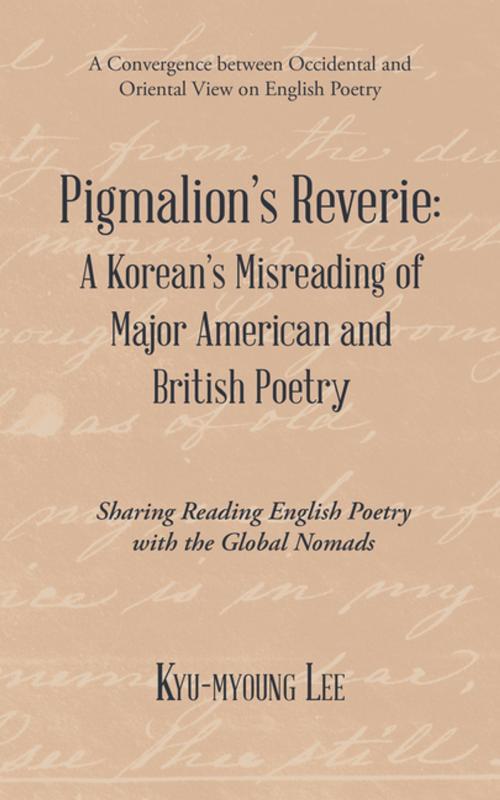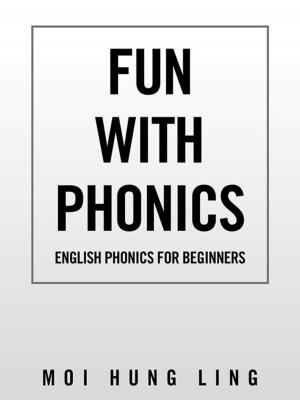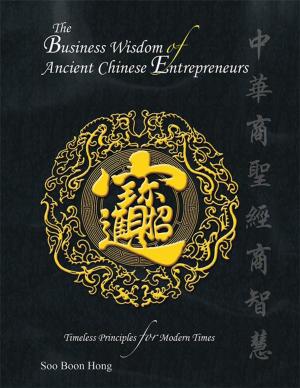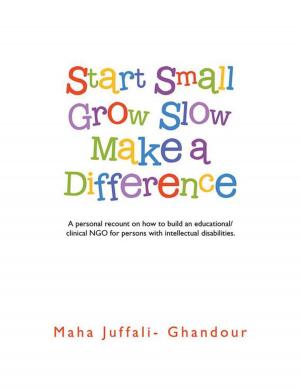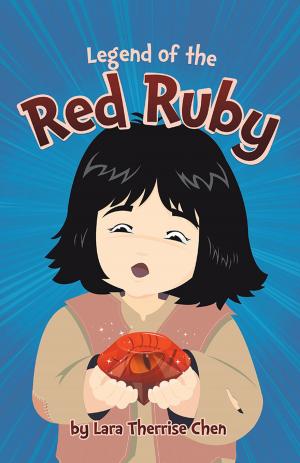Pigmalion’S Reverie: a Korean’S Misreading of Major American and British Poetry
Sharing Reading English Poetry with the Global Nomads
Fiction & Literature, Literary Theory & Criticism, Poetry History & Criticism| Author: | Kyu-myoung Lee | ISBN: | 9781543746556 |
| Publisher: | Partridge Publishing Singapore | Publication: | June 27, 2018 |
| Imprint: | Partridge Publishing Singapore | Language: | English |
| Author: | Kyu-myoung Lee |
| ISBN: | 9781543746556 |
| Publisher: | Partridge Publishing Singapore |
| Publication: | June 27, 2018 |
| Imprint: | Partridge Publishing Singapore |
| Language: | English |
Reading is not an unusual or unfamiliar thing. It must be the first condition of life. Though illiterate or literate, humans should read things, letters, incidents, and situations according to each level of recognition so that they can survive surroundings under the brutal principle of natural selection. Namely, reading must be a reaction for survival. By the way, there are many kinds of readings in the literary world: close reading that new criticism favored, authentic reading that modernism based on elitism pursued, and misreading, as suggested by Harold Bloom, that wayward postmodernism allows. Whichever reading we may choose, it would be innocent because any reading must linger on the level of the parable of Platos cave, in which humans could read the dim shadows of things reflected on the wall. In this sense, Blooms term is very honest rather than being postmodern or deconstructive. Thus, humans cant read the existence of thing itself. What they can read at best is nothing but the indirect, misunderstood fruit through the medium of language according to F. Saussures linguistics. Frankly, humans were born to tell a lie about thing itself, which would be the truth or fate of human existence. Accordingly, however, meticulously we may read poems that would be no better than misreading. Hence, my book has a naive aim that worldwide readers can freely read esoteric English poetry by famed poets regardless of these or those ways of reading, and the interpretations of English poetry dont belong to those professional or authoritarian but to reading public. Furthermore, through reading this subjective criticism on English poetry, worldwide readers can feel interested in how a Korean is reading it. Thus, this book can dedicate itself to the dialectic convergence between the Eastern and the Western ideal.
Reading is not an unusual or unfamiliar thing. It must be the first condition of life. Though illiterate or literate, humans should read things, letters, incidents, and situations according to each level of recognition so that they can survive surroundings under the brutal principle of natural selection. Namely, reading must be a reaction for survival. By the way, there are many kinds of readings in the literary world: close reading that new criticism favored, authentic reading that modernism based on elitism pursued, and misreading, as suggested by Harold Bloom, that wayward postmodernism allows. Whichever reading we may choose, it would be innocent because any reading must linger on the level of the parable of Platos cave, in which humans could read the dim shadows of things reflected on the wall. In this sense, Blooms term is very honest rather than being postmodern or deconstructive. Thus, humans cant read the existence of thing itself. What they can read at best is nothing but the indirect, misunderstood fruit through the medium of language according to F. Saussures linguistics. Frankly, humans were born to tell a lie about thing itself, which would be the truth or fate of human existence. Accordingly, however, meticulously we may read poems that would be no better than misreading. Hence, my book has a naive aim that worldwide readers can freely read esoteric English poetry by famed poets regardless of these or those ways of reading, and the interpretations of English poetry dont belong to those professional or authoritarian but to reading public. Furthermore, through reading this subjective criticism on English poetry, worldwide readers can feel interested in how a Korean is reading it. Thus, this book can dedicate itself to the dialectic convergence between the Eastern and the Western ideal.
